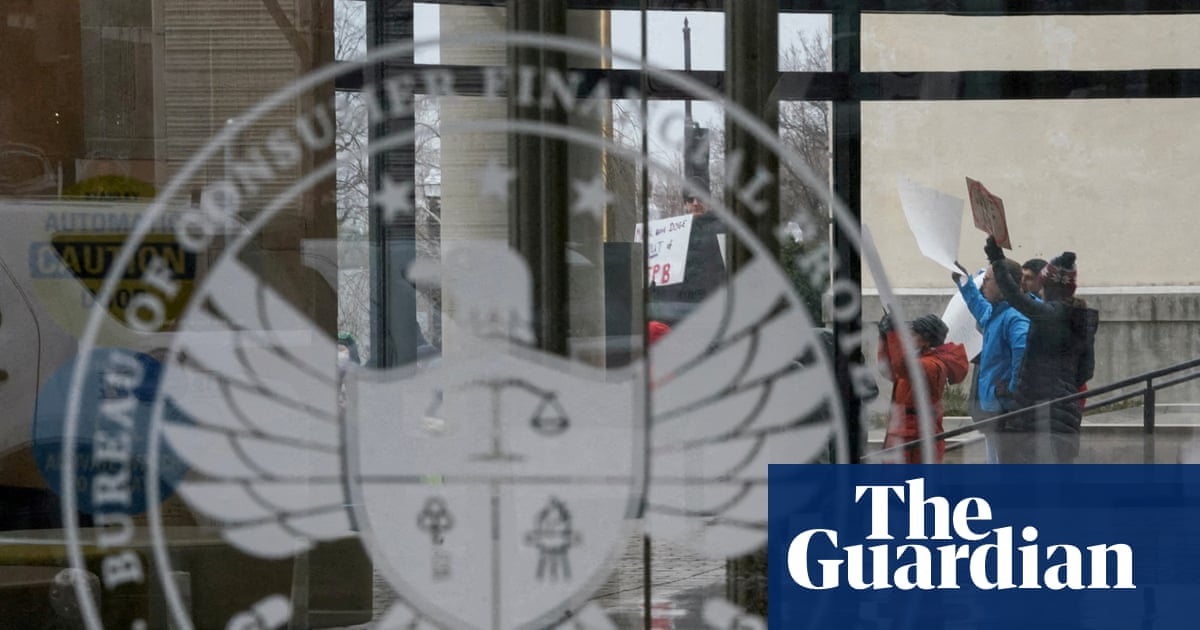SAN FRANCISCO - President Donald Trump faces an unexpected rift in the MAGA movement as Republican officials from statehouses to Capitol Hill warn his full-throated embrace of the tech industry’s artificial intelligence boom risks undermining Americans’ economic security and exposing their children to new harms.
Trump has appointed influential tech investors and entrepreneurs to key positions in his administration and backed the sector’s ambitions for AI, scrapping regulations introduced by President Joe Biden and facilitating huge investments from foreign companies and governments into American AI firms.
This past week, the White House explored using an executive order to quash state regulation on AI. The president has trumpeted the billions of dollars in investments flooding into the technology, which has propped up U.S. economic growth this year, as evidence his plan to reboot the American economy is working.
But a growing cohort of Republicans - including Govs. Ron DeSantis of Florida and Sarah Huckabee Sanders of Arkansas and prominent members of Congress like Sen. Josh Hawley of Missouri - argue AI’s breakneck growth could undermine the party’s populist appeal. Some have called for regulation to protect Americans against job losses driven by automation, shield teenagers from harms caused by chatbots, and curb spikes in utility bills linked to the energy-guzzling data centers that power AI technology.
The division underscores a fault line in Trump’s coalition, which has attempted to serve the working-class voters who propelled him to office while also backing the ambitions of tech and business leaders who have become close allies and advisers in the president’s second term.
Those interests are increasingly at odds, as AI money floods the economy while many voters find their everyday costs remain high - creating tensions that Trump’s economic message has struggled to reconcile at times. Americans broadly disapprove of how the president is handling his second term, according to a Washington Post-ABC News-Ipsos poll this month.
“We’re coming up on an incredible time of innovation,” said Angela Paxton, a Republican state senator in Texas who helped pass a ban this year on using AI to create sexually explicit content featuring children. “At the same time, I think the job landscape is going to change a lot, and I think a lot of people are asking themselves, ‘What does that mean for me and my family?’”
A White House spokesperson declined to comment for this article.
Expectations that AI tools such as ChatGPT will deliver a productivity boost across the economy have propelled tech stocks and market indexes to record highs in recent months. But many Americans are uneasy with AI’s growing role in the U.S. economy and their lives. Half of U.S. adults say they’re more concerned than excited about the increased presence of AI in daily life, according to a Pew Research Center study conducted in June. Only 37 percent said they were more concerned than excited in 2021.
A Yale study released last month concluded that there was not discernible evidence AI was disrupting the labor market. But prominent CEOs, including at Walmart and Amazon, have warned workers to expect their roles to be transformed or eliminated by AI, and there are signs the labor market is slowing.
Biden also endorsed the U.S. tech industry’s development of AI but sought to contain its potential downsides. In a sweeping 2023 executive order, he directed federal agencies to adopt the technology but also required tech companies to share data from safety tests on powerful AI systems with the government.
The policy was unpopular with many in the tech industry, with some citing it among their reasons for throwing their support or money behind Trump’s reelection bid last year. He wasted no time in delivering for the industry, repealing Biden’s AI executive order on the first day of his second term.
Trump’s laissez-faire approach to AI has contrasted with developments outside Washington. AI laws have been proposed in every state and enacted in many, both red and blue. Laws include whistleblower protections for AI workers in California, a ban on governments using AI to decide who gets welfare benefits in Texas and an Ohio provision banning people from attempting to marry an AI system.
Support for the state laws has often been bipartisan, and federal Democrats have also begun speaking out about the risks of AI.
Sen. Mark Kelly (D-Arizona) has proposed using the proceeds from a new tax on AI company profits to retrain people who lose jobs to automation. Left-wing lawmakers like Sen. Bernie Sanders (I-Vermont) and Rep. Alexandria Ocasio-Cortez (D-New York) have said AI will increase wealth inequality as tech companies take over more of the economy.
“What you do about tech is not something that’s uniform among their coalition or among ours,” Rep. Sara Jacobs (D-California) said of the uptick of Republican calls to regulate AI.
“The political spectrum is sometimes a circle,” said Jacobs, who is vice chair of the New Democrat Coalition’s AI working group.
Republicans opposed to Trump’s staunch support of the AI industry argue that it risks putting him at odds with his grassroots supporters.
“Right now, he’s getting pressure from this small cabal of tech bros that stand to make hundreds of billions of dollars if they have their way,” said Brendan Steinhauser, a longtime conservative political strategist who, after seeing AI’s pervasiveness, became CEO of the Alliance for Secure AI, a group seeking guardrails for the technology. “That’s not his base; MAGA is his base, and MAGA is not for this.”
Republican division over AI came to a head last week after Trump and his administration urged Congress to pass a bill preempting state laws on the technology, even if doing so required adding it to a defense appropriations measure. It was a reprisal of an attempt by Sen. Ted Cruz (R-Texas) to pass a “moratorium” on state AI laws over the summer, which failed in the Senate after other Republicans backed out.
As public opposition to the renewed push for preemption grew this past week, the White House floated an executive order that would direct the Justice Department to sue states that passed AI laws.
“Investment in AI is helping to make the U.S. Economy the ‘HOTTEST’ in the World, but overregulation by the States is threatening to undermine this Major Growth Engine,” Trump wrote on social media Tuesday.
Republican politicians at the state and federal level joined conservative activists and media figures to push back on the proposals, saying preemption would be a gift to the tech industry that is out of step with voters’ concerns.
At a Friday news conference in Crystal River, Florida, DeSantis compared the attempt to block state AI laws to efforts to mandate masks during the coronavirus pandemic. “Your freedom can also be undermined by these massive companies that have hugely concentrated power over our society,” he said.
DeSantis promised to unveil a “robust package” of state AI policies and referenced fears that the current excitement about AI may lead to a financial slump if the technology doesn’t work out as promised. He has previously spoken of his concerns that AI may displace workers.
Sanders and Utah’s Republican governor, Spencer Cox, also spoke out against the Trump and White House proposals to limit states from passing AI laws.
“We already made the mistake of allowing social media companies to destroy our children’s mental health and tear our country apart. Let’s not do it again,” Cox wrote in a post on X. Several families have filed lawsuits against chatbot developers this year, alleging AI apps led their teens to develop mental health problems or even take their own lives.
Paxton, the Texas state senator, said voters increasingly raise concerns about AI and expect her and other state lawmakers to act.
“What the general population doesn’t want is for states to be handcuffed in our ability to address … real harms that are happening,” Paxton said. “This movement to preemption would obliterate the important work we’ve done and create a wild, wild West.”
Paxton said she plans to work on more Texas bills related to AI and child safety.
Trump has embraced the AI industry since the first full day of his second term, when he hosted tech moguls including ChatGPT-maker OpenAI’s chief executive, Sam Altman, at the White House to announce plans to spend hundreds of billions of dollars on new data centers in the United States. (The Post has a content partnership with OpenAI.)
The president’s top tech adviser is his AI and crypto czar, David Sacks, an influential investor who has described himself as a bridge between Silicon Valley and Trump’s Washington. A parade of tech leaders have visited the White House this year, bearing gifts for Trump and announcing plans to invest hundreds of billions of dollars into AI.
Trump and his administration have supported the AI industry by lifting restrictions on chip exports, moving to fast-track data center construction and giving a $1 billion loan guarantee to the company restarting the Three Mile Island nuclear plant to supply electricity to Microsoft data centers.
Tech industry leaders have argued massive investment in AI technology will pay off by creating thousands of jobs, helping the U.S. compete with China and eventually delivering transformative breakthroughs in medicine and science.
Steinhauser, the conservative strategist, said Trump voters can see through the sometimes hazy predictions of future benefits made by some tech executives. Elon Musk predicted last week that his company Tesla’s future humanoid robots will “eliminate poverty.”
Some are “promising utopia,” Steinhauser said. “I don’t think people are buying that.”
Related Content
Inside a thriving Chinatown neighborhood in the heart of West Africa
Every year, SEC powers play a cupcake. When an upset comes, it’s eternal.

 German (DE)
German (DE)  English (US)
English (US)  Spanish (ES)
Spanish (ES)  French (FR)
French (FR)  Hindi (IN)
Hindi (IN)  Italian (IT)
Italian (IT)  Russian (RU)
Russian (RU) 























Comments